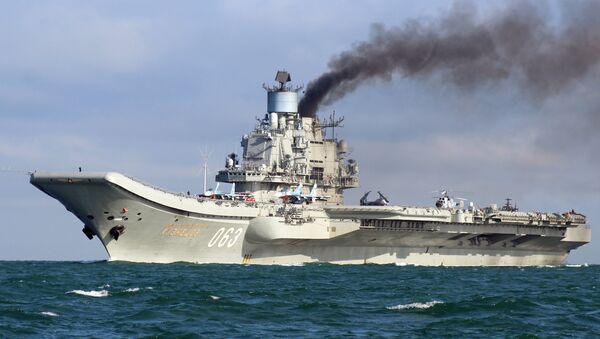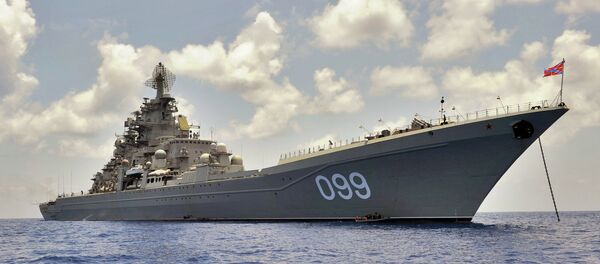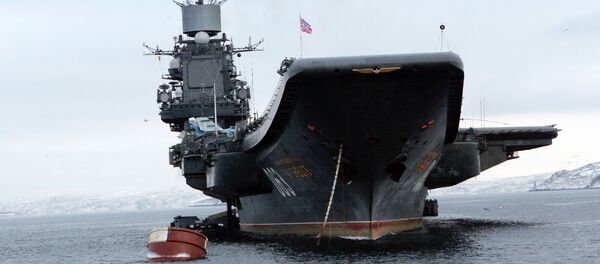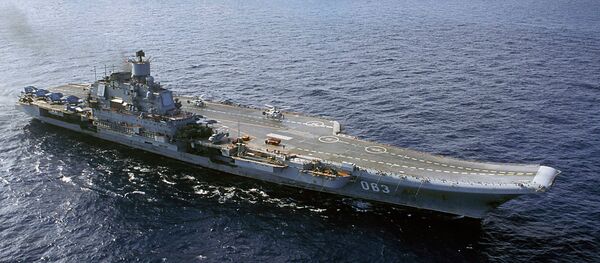However, neither Spain nor Malta bothered to confirm whether the Russian Defense Ministry had sent a request on entry to their ports for the naval group.
Meanwhile, Maj. Gen. Igor Konashenkov said that the Russian aircraft carrier group led by the Admiral Kuznetsov is provided with sufficient amount of resources for its mission in the Mediterranean Sea. It can operate autonomously for at least 45 days.
Konashenkov also said that the Russian Defense Ministry had not sent requests to Spain and Malta over entry to their ports for refueling.
"Nevertheless, European media is continuing to fuel the panic with headlines about 'Russian nuclear threat' and a 'countdown to world war III.' In addition, the NATO military has been on alert," Bychkov wrote for Sputnik.
"[Russian President Vladimir] Putin is showing a desire for dominance. From the Arctic, to the Baltic and the Black Sea, sometimes simultaneously, Russia wants to use sophisticated weaponry mixed with ships of a Soviet vintage," a senior NATO diplomat was quoted as saying by Reuters.
In turn, Russia’s ambassador to NATO Alexander Grushko stressed that Moscow did not threaten European security.
"The alliance is more focused on the development and deepening of its policy of a comprehensive military and political containment of Russia," Grushko noted.
The Russian Defense Ministry had to make a statement to rebuff Stoltenberg’s assumption.
"These concerns are groundless, because our planes have not been even close to Aleppo for nine days. There are no reasons to worry. A group of ships is now in the Mediterranean. Our ships have always been in the Mediterranean. There are no reasons to suspect something, no reason for Stoltenberg's claims," Andrei Kelin, the head of the Russian Foreign Ministry's European Cooperation Department, told RIA Novosti on Thursday.
"The mission of the Russian naval group has also become a headache for the United States. In particular, it added to Washington’s fears that the operation to liberate Mosul from Daesh may not be accomplished before the presidential election on November 8," the article read.
Another problem was related to the Spanish autonomous city of Ceuta on the North African coast. Over the past five years, Russian warships have entered the port nearly 60 times. This is a big concern for the Pentagon, Bychkov wrote.




